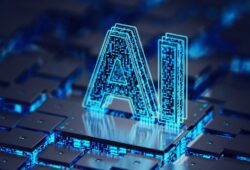The answer isn’t a simple yes or no. Every new technology brings promise and peril for brands. The internet, for example, allowed newspapers to reach audiences at unprecedented scale, becoming the gateway to news for millions. Yet it also destroyed the very thing that sustained them: the print edition. Along with it went paper routes and entire industries that once thrived. Efficiency came at the cost of tradition and, for many, livelihoods.
Artificial intelligence presents a similar paradox. It has the power to transform brands—but it also has the potential to wound them, perhaps more deeply than any tool before it. And I don’t just mean AI-generated content. Entire call centers could vanish, stripping away the human contact that shapes consumer perception. Yes, some people prefer an app or chatbot. But in countless moments, a human voice makes the difference between winning loyalty and losing a customer forever.
The data backs up this tension. In 2025, a survey found that 63% of shoppers worldwide appreciate AI’s role in recommending products, but nearly half said they dislike dealing with AI when shopping. In the U.S., more than half said AI would have been helpful for recent purchases, yet 58% worry about how companies handle their data. And in Australia, just 36% of consumers say they trust AI at all, while nearly 80% fear its risks—from misinformation to job losses (TechRadar, The Australian).
So while AI may be efficient, it can just as easily come across as inauthentic. Think of Vogue’s recent backlash for using virtual models. Consumers had no problem with airbrushed photos—but the moment they were shown people who don’t exist, they revolted. That’s the thin line AI forces brands to walk: it can help, but it can just as easily strip away authenticity.
I’ve lost count of how many CMOs have shown me marketing strategies generated by ChatGPT. They all had one thing in common: they looked identical. That sameness is deadly in branding. In a world where standing out is everything, AI risks making brands indistinguishable.
There’s also the matter of trust. By leaning too heavily on AI outputs, brands may accidentally use copyrighted ideas or artistic work without realizing it. The legal risks are obvious—but the reputational ones are even bigger. No consumer wants to find out the “fresh idea” they admired was scraped from an artist who can no longer make a living.
And then there’s the issue of expectation. Restaurants know better than to oversell food with photos that look nothing like the meal you’ll get. Consumers expect some idealization, but they also expect honesty. With AI, the temptation to polish, exaggerate, or even mislead will be overwhelming—and marketers could miss the line until it’s too late.
Yes, AI will change jobs. But history suggests it won’t eliminate the need for humans—it will just push them into roles that oversee, correct, and manage the very systems that replaced them. Brands will still need people to inject humanity into the process, to safeguard trust, and to prevent efficiency from erasing authenticity.
That’s the real danger for brands: not that AI fails, but that it works too well, leading them down a path where everything is smooth, fast, optimized—and indistinguishable. Efficiency without authenticity isn’t branding. It’s commoditization.
Keep Reading:
-
My Life with the Walter Boys: Who are the new characters in season 2?
-
Wienerschnitzel is launching Labor Day deals! Check them out
-
Petco reports profit growth despite sales decline in Q2 2025
-
Leadership, AI, and talent: the 5 keys to the new global business model, according to Deloitte
-
Dollar Tree will now deliver through Uber Eats! This is what you can buy









